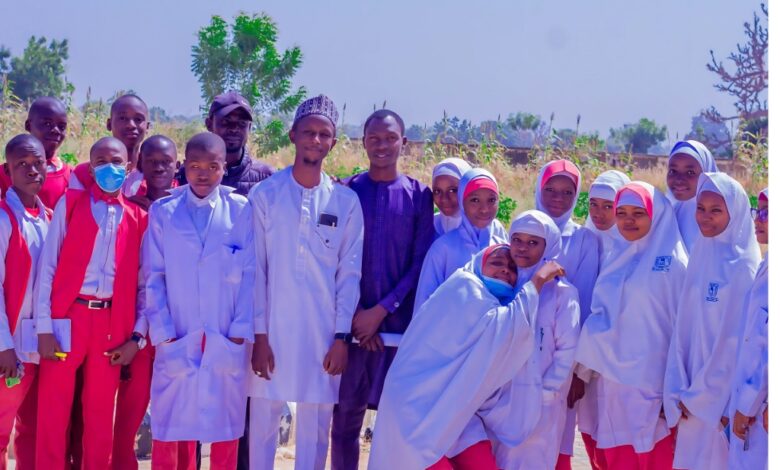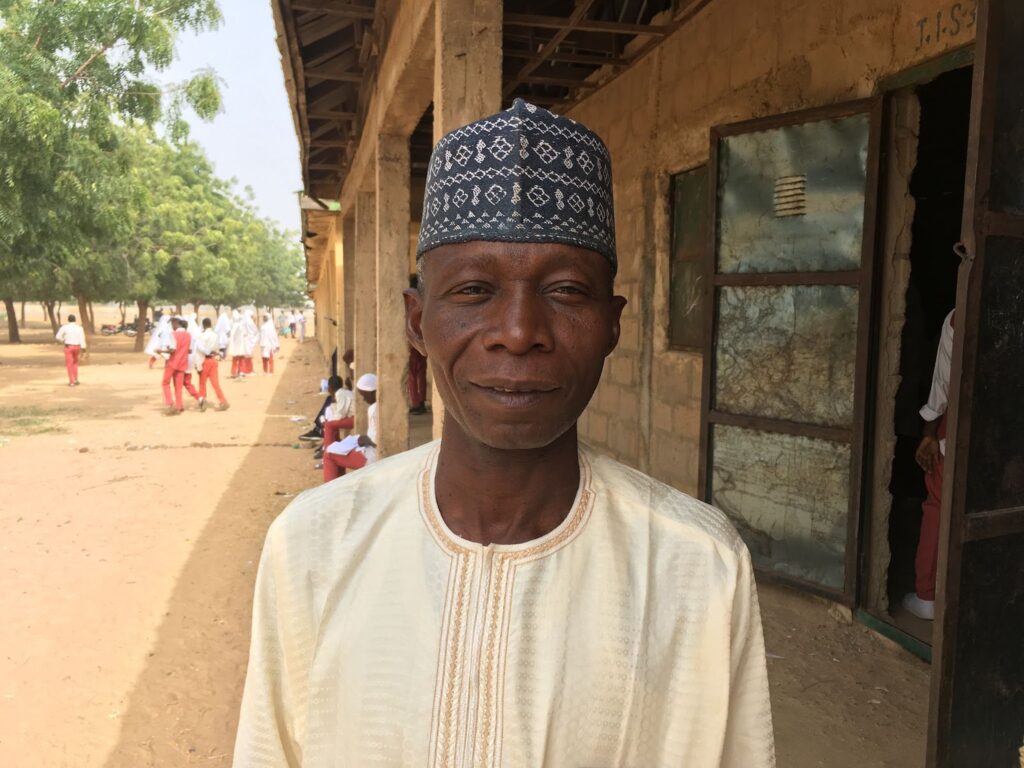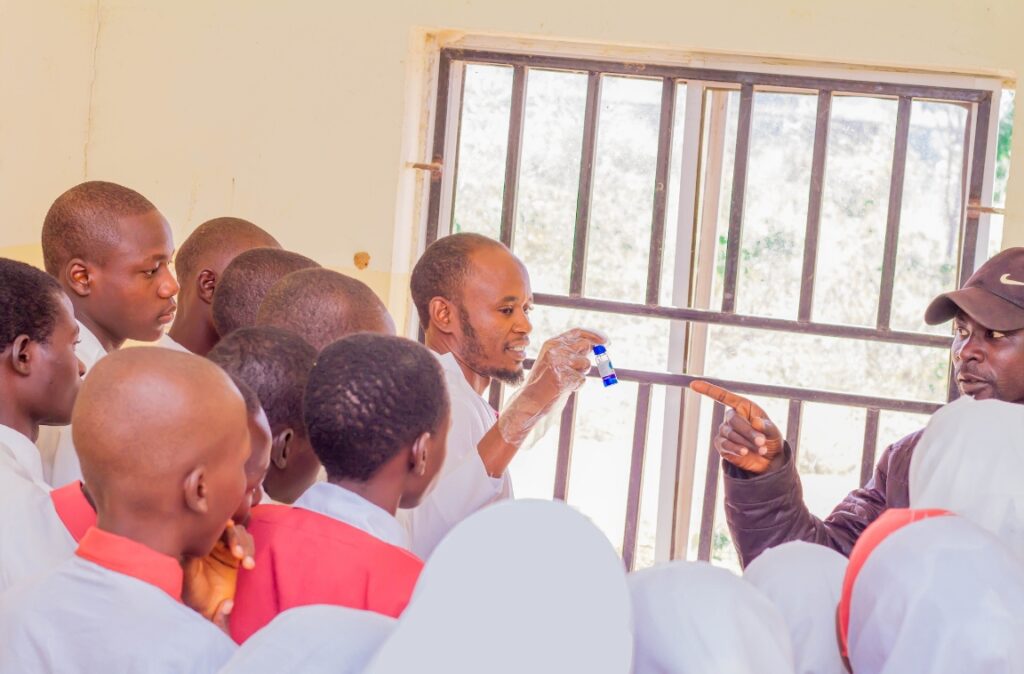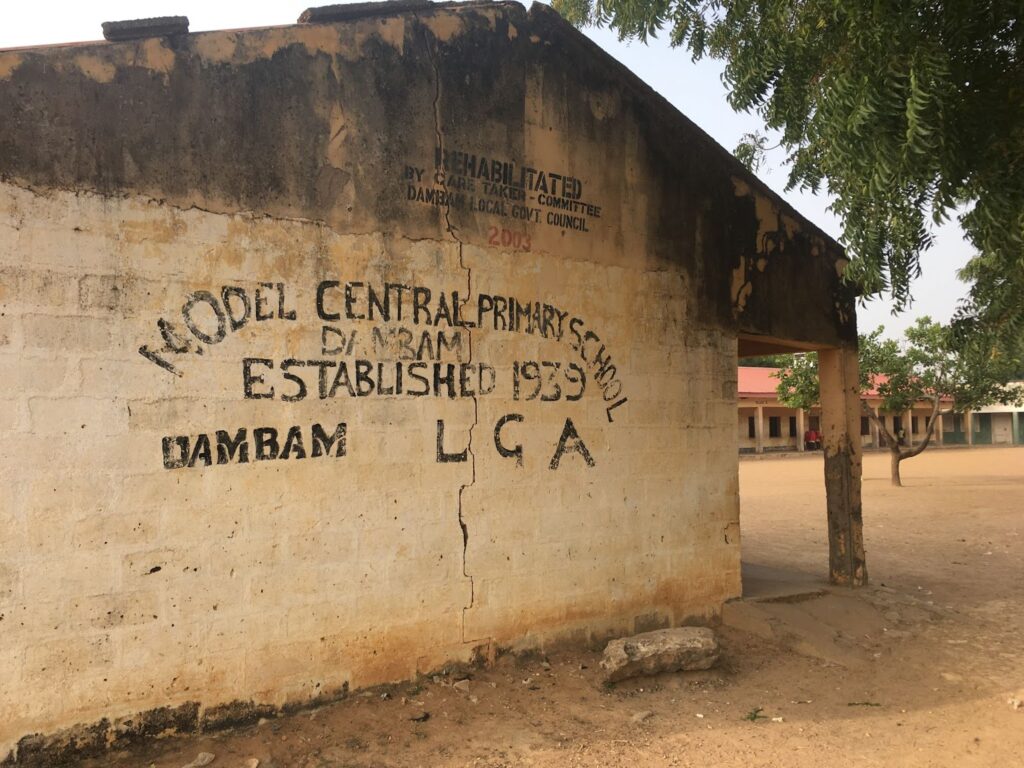Breaking Barriers: How Community-Driven School Brings Hope to Northeastern Nigeria
In a region facing significant socio-cultural barriers to education, a community in northeastern Nigeria is redefining learning through flexible programmes and collective efforts that prioritise every child's education, regardless of their circumstances.

After finishing secondary school, 19-year-old Fatima Umar faced opposition from her father, who was against her plans to continue her education. “But when he saw that I could study close to my matrimonial home, he agreed,” she said.
Now, Fatima is pursuing a National Certificate in Education (NCE) at the College of Arabic and Islamic Studies (CAIS) in Dambam, Bauchi State, northeastern Nigeria.
Fatima’s story reflects a broader reality in northern Nigeria, where socio-cultural norms often restrict access to education, particularly for girls. In many communities, families view formal schooling as unnecessary, expecting girls to prioritise marriage and domestic duties. Boys, though more likely to attend school, often face disruptions due to family labour demands or an emphasis on religious education.
In Dambam, CAIS is rewriting this narrative. Through flexible morning and evening secondary school classes and its NCE programme, the college provides young people, especially girls, with a rare opportunity to access education in a region where it is often beyond reach.
Humble beginnings
CAIS began in 2002 as a modest evening Islamic class at a local primary school, focusing solely on the Quran and other Islamic subjects. It was a community-led initiative, spearheaded by Mallam Imam Abdullahi, Mallam Tijjani Lawan, Mallam Ahmad D., and other dedicated community members. The project quickly gained widespread support from residents.
Recognising the need to integrate formal education, the organisers introduced evening secondary school classes, using the same facilities as Dambam Central Primary School. The turning point came when Alhaji Muhammad Nadada, the Zannan Misau (a local traditional ruler), donated a plot of land. This enabled the construction of six classrooms, an office, and a library, funded by Ahmad Garba, a House of Assembly member and Shetiman Dambam.
With this expansion, the college introduced morning sessions and established its NCE programme, accredited by the National Teachers Institute (NTI), which is set to graduate its first cohort this year.
Since its inception, CAIS has graduated more than 1,000 students, with an estimated 4,000 benefiting from its programmes. In 2021, it introduced the National Examination Council (NECO) examination, further solidifying its role in expanding educational opportunities. Currently, the college has 350 students enrolled across its programmes.
The college’s mission is deeply rooted in the region’s history. Western education arrived in Dambam in 1939 with the establishment of Dambam Central Primary School—one of the oldest in northeastern Nigeria. Decades later, CAIS continues to build on that legacy, ensuring that education remains within reach for those determined to pursue it.
Community-driven model
“The school’s success is largely driven by remarkable community support,” said Abba Abdullahi Dambam, Director at CAIS and a lecturer at Aminu Saleh College of Education Azare. “Volunteer teachers from the community, internship students for teaching practice, and National Youth Service Corps (NYSC) members form the backbone of its teaching staff.”
“We recognised the gaps in education within our community and knew we couldn’t wait for external solutions. By coming together as a community, we took it upon ourselves to create a system that works for everyone, young and old, boys and girls,” he added.

Anas Abdullahi, the principal of the morning session, echoed this sentiment: “Teaching at CAIS is seen as a community responsibility because most of our teachers are from within the community. We understand our people’s challenges and the importance of education in overcoming them. Despite the lack of substantial financial rewards, we are willing and fighting to teach at the school because we know our children’s future depends on it.”
Volunteer teachers receive a monthly stipend of ₦5,000—barely enough to cover transport costs—but remain committed to their roles.
“I voluntarily started teaching at CAIS after graduating from university. I told myself, who would if I didn’t help my community? That’s how I began teaching at the school,” Yahaya Lawal, one of the teachers, told HumAngle.
A lifeline for dropouts
The scarcity of senior secondary schools in Dambam means many students have no choice but to drop out after junior secondary school. “The single senior secondary school in Dambam simply doesn’t have the capacity for everyone,” Anas said. “It’s painful to watch promising students forced to abandon their education because there’s nowhere to go.”
CAIS introduced additional classes at a local primary school in the afternoons to address this. The curriculum included formal and Islamic subjects, making the programme more appealing to families. “Parents were more willing to send their children because they knew they’d learn something aligned with their values,” he told HumAngle. “For us, it was about creating an opportunity that didn’t exist before, one that gave both the students and their families hope.”
The introduction of the NCE programme was a game-changer, particularly for girls. By allowing students to pursue higher education within their community, CAIS eliminated barriers like the cost of living away from home.
“I don’t worry about going to other places to obtain at least a certificate in education,” said Mohammad Umar, an NCE student at CAIS. “At the moment, there’s no need to waste extra resources on accommodation. I can easily do my business in Dambam and attend school at the same time.”
Seventeen-year-old Aminu Yusuf, who works as a motor mechanic apprentice during the day to support his family, is another student benefiting from the flexibility CAIS offers. With no time to attend morning classes, Aminu relies on the school’s evening sessions to continue his secondary education.
“The evening classes are my only chance to learn,” he explained. “During the day, I’m at the workshop fixing vehicles. I come here in my uniform in the evening, ready to study.”
Aminu and Mohammad’s dedication is reflected in the efforts of many of his classmates, who juggle various jobs while striving to improve their futures through education. “I want to continue my studies after completing my NCE here,” Aminu told HumAngle. “This school has given me a way forward when I thought there was none.”

Bridging socio-economic gaps
Dr Omovigho Rani Ebireri, a lecturer in the Department of Continuing Education and Extension Services at the University of Maiduguri, Borno State, lauded the model.
“The flexible learning model adopted by CAIS is commendable and aligns with global best practices for ensuring inclusivity in education. The nature of its programmes at the school has effectively addressed critical barriers to learning, especially for girls and working students. This model can be a blueprint for other underserved communities,” he noted.
“Local ownership and volunteerism, as seen in Dambam, are key to sustaining educational initiatives in rural areas. Such efforts can significantly reduce dropout rates and create lifelong learning pathways,” said Dr Ebireri, highlighting the importance of community involvement.
The hurdles
Despite its successes, CAIS faces significant hurdles. Overcrowded classrooms, a lack of teaching materials, and insufficient other infrastructure also hinder the school’s growth.
“We are doing our best, but the challenges are overwhelming; more support is crucial if we are to sustain this initiative and secure a brighter future for our children,” said Anas.

Funding also remains a pressing issue. The ₦3,000 school fees students pay barely cover expenses, and many rely on community-funded scholarships. CAIS has ventured into farming to generate additional income to support its operations.
“We couldn’t just sit back and watch; our children’s future was at risk,” one of the community elders said.
Socio-cultural barriers also persist, with some families reluctant to send their daughters to school or prioritising work over education for boys. Dr Ebireri suggested that CAIS could strengthen its efforts by introducing mentorship programmes that connect female students with educated women from similar backgrounds and provide relatable role models. Expanding community engagement campaigns could also help challenge prevailing attitudes towards girls’ education and foster broader support.
A symbol of hope
The community-driven approach of CAIS offers a stark contrast to the systemic issues plaguing education in Bauchi State. According to a World Bank report, 48% of teachers in the state are absent from their posts—a figure significantly higher than the national average.
Yet, amidst these challenges, the people of Dambam remain determined to rewrite their story. “We know our community is left behind, but we are trying our best to catch up,” said Yahaya Lawal.
Located beside a bustling highway, CAIS is a striking sight for travellers. The white-and-red uniforms of morning students and the calm blue-and-white attire of evening learners create a captivating scene that speaks of resilience, ambition, and the power of education to transform lives. “I always enjoy passing through this highway, especially during closing time or when students are heading to school,” Habib Mustapha, a frequent commuter, told HumAngle. “It’s inspiring to see such energy in the community.”
The College of Arabic and Islamic Studies in Dambam, Bauchi State, Nigeria, is overcoming socio-cultural barriers to education in northeastern Nigeria through community-driven initiatives. Originating in 2002 as an evening Islamic school, it now offers flexible education solutions with morning and evening classes and a National Certificate in Education (NCE) program, providing significant opportunities for girls and working students. Despite challenges like inadequate resources and socio-cultural resistance, the college thrives through community support and volunteer teaching. It serves as an educational beacon, ensuring continued access to learning for all community members.
Support Our Journalism
There are millions of ordinary people affected by conflict in Africa whose stories are missing in the mainstream media. HumAngle is determined to tell those challenging and under-reported stories, hoping that the people impacted by these conflicts will find the safety and security they deserve.
To ensure that we continue to provide public service coverage, we have a small favour to ask you. We want you to be part of our journalistic endeavour by contributing a token to us.
Your donation will further promote a robust, free, and independent media.
Donate HereStay Closer To The Stories That Matter




